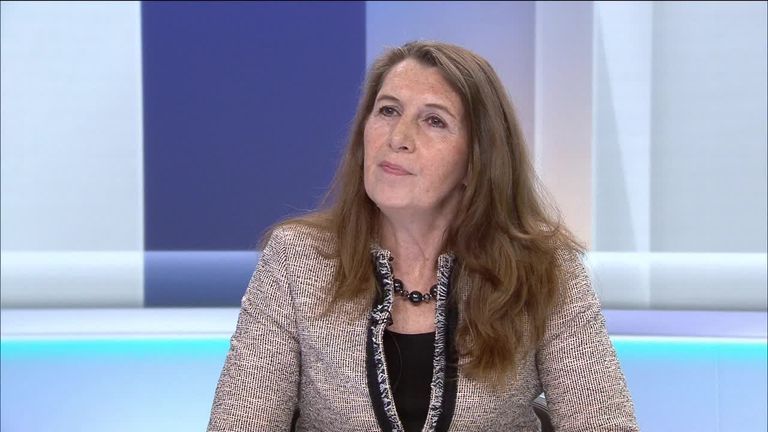The dinosaurs stalking British boardrooms will face more shame until they change
The government will go on shaming corporations into changing their ways until they boost women in senior roles, says Beth Rigby.
Thursday 31 May 2018 13:24, UK
When the former "Women on Boards" tsar Lord Davies first announced targets for female representation in the boardroom, back in 2011, he came armed with a stick: increase the number in your ranks or face quotas.
The threat worked.
Britain's hundred biggest companies, the FTSE100, knew they had to change, and a 2015 target to ensure at least a quarter of the positions in boardrooms were filled by women was smashed a year early.
This was, quite rightly, celebrated as progress.
But, those involved in the initiative knew the non-executive quotas for the FTSE100 were just low-hanging fruit.
The real challenge was to get more women into senior executive positions, while also getting the more recalcitrant FTSE250 to get on board.
That's why new targets were set in 2016.
Britain's top 350 companies were told to increase female representation to 33% by 2020.
And, crucially, they were also ordered to make sure a third of their leadership positions below board level were female.
This was a bid to build up the pipeline of talent beyond sticking a couple of part-time female non-executives on the board.
That requires real culture change, and the government - having quietly shelved the threat of quotas - is now using a new stick to prod executives into action: shame.
Ahead of the publication of latest figures for women on boards this month, the government has published a slew of "shocking" excuses being deployed by some executives for not appointing more women.
"All the 'good' women have already been snapped up," said one.
"Most women don't want the hassle and pressure of sitting on a board," said another.
"We already have women on the board, so we are done - it is someone else's turn," was another claim.
For all the progress, the dinosaurs are still stalking many a British boardroom.
There are still 11 FTSE250 companies with all-male boards, including Sports Direct and Stobart Group.
BP and Smurfit Kappa are two FTSE100 companies that still have all-male executive committees.
Around a third of FTSE350 companies still have very few women either on boards or in leadership roles.
The list of excuses that belong in the 1950s rather than 2018 is a sign perhaps of how long cultural shifts can take for some.
However, the tipping point is in sight - and the government will go on shaming corporations into changing their ways.
The threat of quotas is always there, but business leaders and ministers know they won't need it.





